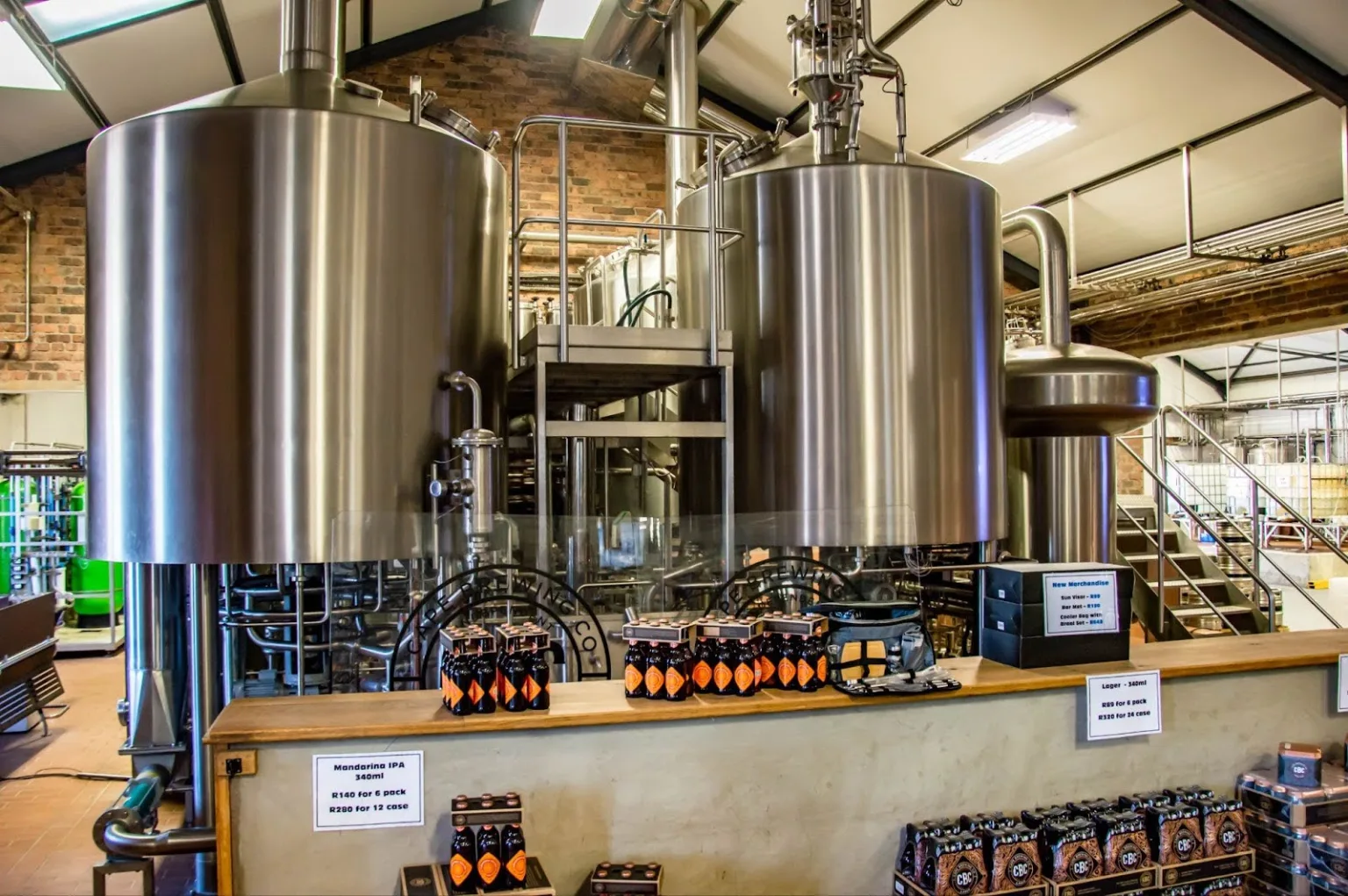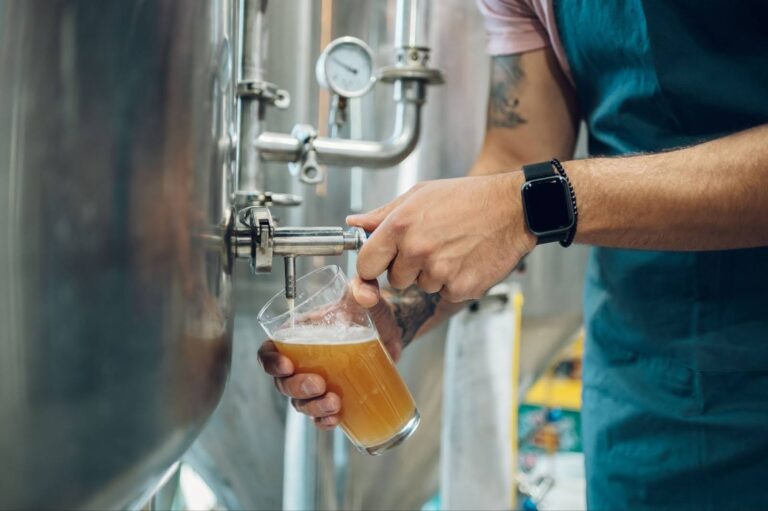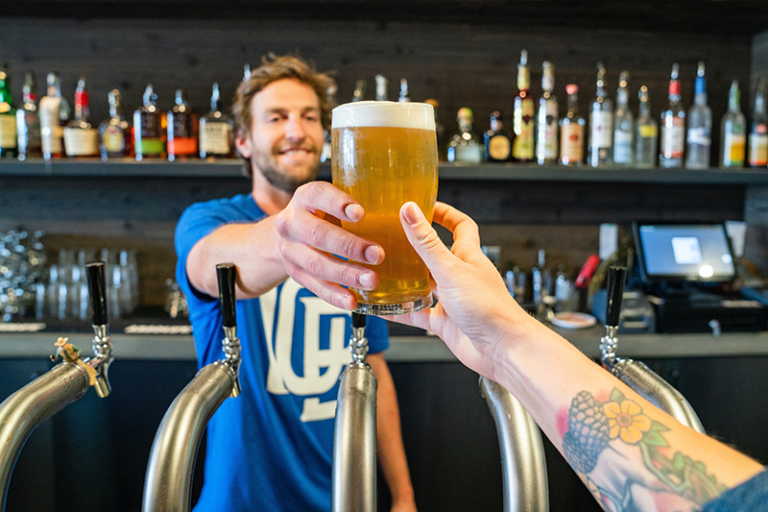Our 7 Favorite Brewery Tax Deductions in 2024

We don’t want to waste your time in today’s blog by talking about tax deductions & write-offs that you can use in any business.
We’re assuming that you’re a business owner, and you already know of the typical tax write-offs such as home office deductions & car mileage.
Instead, we’re going to talk about tax write offs that are specifically useful & lucrative for breweries.
So, if you’re a brewery owner, listen up.
These 7 brewery tax write-offs can save you tens of thousands of dollars each year:
#1 R&D Tax Credit
The Research and Development (R&D) tax credit is a goldmine for breweries, especially with the surge in craft beer popularity.
Craft beer is all about innovation and creativity, and that’s exactly what the R&D credit rewards.
Whether you’re experimenting with new flavors, perfecting brewing processes, or designing unique bottle labels, you could qualify for this credit.
Surprisingly, less than one-third of eligible businesses take advantage of it!
What Qualifies?
- Prototype batches using new:
- Product formulations
- Hopping techniques
- Fermentation processes
- Filtration methodologies
- Ingredient mixing methodologies
- Ingredient processing techniques
- Product ingredient mixtures for desired flavor or aroma profiles
- Research and testing into improved/more efficient:
- Bottling or canning processes
- Water recycling or waste management processes
This credit is meant to reward companies willing to invest in improving their processes and developing new products, regardless of whether the projects succeed or not.
So, to qualify for the R&D tax credit, your activities must meet a four-part test established by the IRS:
- Elimination of Uncertainty: Your activities must aim to eliminate uncertainty about the development or improvement of a product or process. Aesthetic changes won’t cut it.
- Process of Experimentation: You must demonstrate that you’ve evaluated alternatives through methods like modeling, simulation, trial and error, or other approaches.
- Technological in Nature: The experimentation must rely on hard sciences such as engineering, physics, chemistry, biology, or computer science.
- Qualified Purpose: The research must aim to create a new or improved product or process, enhancing performance, function, reliability, or quality.
The expenditures are derived mostly from employee time, consultant expenses and related R&D supplies.
Note: Calculation and determining eligibility of the R&D tax credit is a rather complex process and requires an experienced brewery accountant with knowledge and experience with this kind of credit. If you’re in need of a new brewery accountant, you can get in touch anytime by scheduling a discovery call here.
#2 FICA Tip Credit
The FICA Tip Credit for breweries is one that we’re passionate about, and written about extensively here. It’s essentially essentially free money from the government that you can claim based on the tips your employees report.
This credit is a way for the government to provide relief to businesses in the food and beverage industry, such as restaurants, bars, and yes, breweries.
Before this credit was introduced, the IRS estimated that only about 15% of tip income was reported. By offering the FICA Tip Credit, the government encourages businesses to report tip income accurately, reducing the payroll tax burden on these establishments.
How Does it Work?
Here’s how the FICA Tip Credit can benefit your brewery:
Eligibility: To qualify, your employees must have received tips from customers for providing, delivering, or serving food or beverages where tipping is customary. Additionally, your business should have paid or incurred employer Social Security and Medicare taxes on those tips.
Claiming the Credit: When filing your business tax return, make sure to include IRS Form 8846, titled “Credit for Employer Social Security and Medicare Taxes Paid on Certain Employee Tips.” If this form isn’t on your return, you’re missing out on this valuable credit.
Calculation: An experienced accountant can accurately calculate how much your brewery can save through the FICA Tip Credit. Generally, the credit can be claimed up to the amount of your portion of FICA taxes paid on your employees’ income in excess of the federal minimum wage. With the majority of states having a higher minimum wage threshold, your brewery most likely can receive the FICA Tip Credit on 100% of all reported tips, potentially saving your brewery thousands of dollars annually.
Why It Matters
The FICA Tip Credit is not a credit to be underestimated. It can make a significant difference in your brewery’s financial health.
It can result in substantial savings on your payroll taxes, allowing you to keep more of your revenue, and any unused credit can be carried forward for up to 20 years, ensuring you don’t miss out on potential savings.
If you learn anything from this blog, it’s to not let your brewery miss out on the FICA Tip Credit. Get in touch with us if you need more information here.
#3 Charitable Donations
Contrary to popular belief, charitable giving doesn’t always require handing over cash.
Breweries, like other businesses with an inventory supply, often find themselves with surplus or out-of-season beer. This excess inventory can be a valuable asset when it comes to charitable donations.
Picture this: your brewery produces a delightful winter ale that’s a hit during the colder months, but come springtime, consumers are no longer craving those comforting notes of nutmeg and cinnamon.
What do you do with the excess winter ale? Instead of letting it collect dust or disposing of it, consider donating it to a qualified charitable non-profit for a fundraising event.
Here’s how this charitable act can translate into brewery tax savings:
- Consumable Condition: To qualify for a brewery tax deduction, the beer must be in consumable condition. This means it should be fit for consumption and meet quality standards. Damaged or spoiled beer may not be eligible.
- Registered 501(c)(3): Ensure that the charitable non-profit you’re donating to is a registered 501(c)(3) organization. These organizations have tax-exempt status, and your donation can be tax-deductible.
- Documentation: Keep thorough documentation of the donation process. This includes records of the quantity and type of beer donated, the date of the donation, and the recipient charity’s details. Additionally, it’s essential to obtain a signed form or acknowledgment from the charity acknowledging the donation. This documentation will be crucial when claiming the tax benefit.
#4 Section 179 Deduction and Bonus Depreciation
Need new brewing equipment in 2024? Section 179 Deduction and Bonus Depreciation are two valuable incentives that can help you deduct the cost of qualifying equipment purchases in the year you buy them.
It’s a great way to invest in your brewery’s growth while reducing your taxable income.
Section 179
Section 179 allows small businesses, including breweries, to write off the entire purchase price of assets like machinery, software, and vehicles immediately. No need to spread deductions over years.
Key Points for 2024:
- Full Deduction: Deduct the entire purchase price.
- 2024 Limit: Up to $1,220,000 can be expensed.
- Section 179 frees up capital for your brewery, enabling you to reinvest and grow faster.
Bonus Depreciation
Bonus Depreciation complements Section 179 by letting you deduct 60% of qualifying asset costs immediately in 2024 for equipment placed into service from January 1, 2024, through December 31, 2024.
Key Points for 2024:
- Immediate Deduction: Deduct a significant portion of asset costs.
- Deadline: Ensure assets are in service by December 31, 2024.
Use Section 179 and Bonus Depreciation to acquire equipment and boost your brewery without financial strain.
#5 Sales Tax Exemption
Sales tax can add up quickly, especially for a brewery. The good news is that most brewing equipment qualifies for a manufacturing sales tax exemption, providing a significant reduction in the sales tax rate.
Here’s what you need to know to benefit from this valuable exemption:
The Sales Tax Exemption
The manufacturing sales tax exemption translates into a reduction of the sales tax rate by 4.1875% on eligible production purchases. It’s a straightforward process to claim this reduced rate and can make a substantial difference to your bottom line.
How to Claim the Reduced Rate
When you make a qualified purchase or lease for your brewery equipment, all you need to do is provide a Partial Exemption Certificate for Manufacturing Equipment to the seller. It’s a simple step that can lead to significant savings, allowing you to allocate your resources where they matter most—brewing exceptional beer.
Retroactive Benefits
If you’re wondering whether it’s too late to benefit from this exemption for past purchases, worry not. While the exemption started in July 2014, you may still be eligible for a refund on the sales tax that could have been applied to previous qualifying purchases.
#6 Fuel Tax Credit
We all know that the federal government slaps taxes on fuel purchases, but the good news is that not all fuel is meant to be taxed.
This is particularly important for breweries like yours that use fuel for off-highway purposes, such as running machinery and equipment.
That’s where the Fuel Tax Credit comes in. It’s Uncle Sam’s way of saying not all fuel should be taxed when it’s not used on the road. It’s like a financial relief package specially designed for businesses like breweries.
If you’re using propane, there’s a small hoop to jump through – as you’ll need to register as an alternative fuel user. This step ensures you can claim the propane credit and save even more.
But for other fuels used off-highway, there’s no extra registration needed. You can claim the fuel tax credit without any additional paperwork, making it a hassle-free way to reduce your operational costs and keep your brewery thriving.
#7 The Work Opportunity Tax Credit
Last but not least, the Work Opportunity Tax Credit is a tax credit that rewards you for hiring people from certain targeted groups, such as veterans and disabled persons.
This is a great way to get money back while also helping those in need and improving customer and community relations.
Here are the nitty-gritty details:
- The WOTC is available for wages paid to certain individuals who begin work on or before December 31, 2024.
- The WOTC may be claimed by any employer that hires and pays or incurs wages to certain individuals who are certified by a designated local agency (sometimes referred to as a state workforce agency) as being a member of one of 10 targeted groups.
- In general, the WOTC is equal to 40% of up to $6,000 of wages paid to, or incurred on behalf of, an individual who:
- is in their first year of employment;
- is certified as being a member of a targeted group; and
- performs at least 400 hours of services for that employer.
- The maximum tax credit is generally $2,400
“What If I’ve Missed Past Brewery Tax Deductions?”
If you’re like a lot of new clients that come to us here at U-Nique Accounting, it’s possible that your brewery accountant may have missed a tax deduction (or two) over the years, and you could be owed tens of thousands of dollars in savings.
The good news is that many of these tax deductions can be applied retroactively—meaning we can do the work to fix your previous tax returns and claim the savings now.
If you feel like this is the situation you’re in, we recommend booking a call with our team using the calendar down below. We can meet briefly and discuss the best next steps to help you recover lost funds.
If you have a generic question for us, you can reach out to us via email anytime here.
Until next time!



